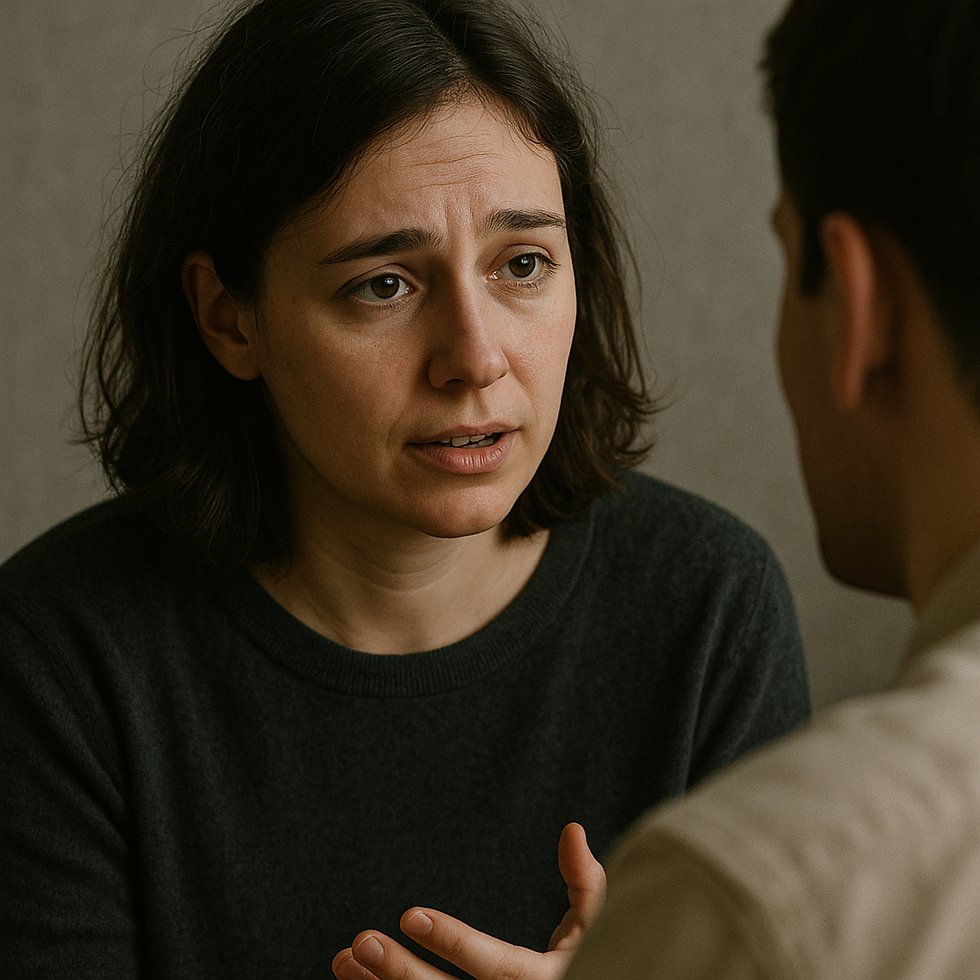Could AI be my therapist?
- Jacasa Currie
- Sep 13, 2025
- 4 min read
In today's every growing technology based world, it isn't impossible that AI is taking on more jobs than ever. But could AI be a therapist? I know that there is a high need for mental health services. It took me quite a while to get in to see a therapist. I practically had to be in a mental health crisis to be seen. The spike in need for mental health services has skyrocketed since the COVID-19 pandemic. A lot of people were struggling with the idea of this rapidly spreading sickness seemingly wiping people out per the media. People lost loved ones and were forced to stay inside the confines of their homes. People became more depressed and anxious by the day. Therefore the need for therapy rose to an all time high.

So, could there be an answer to this problem? Possibly. We have all gone through rough patches in our lives. Some of us have even gone as far as to feel as though giving up was the only option. However, that is never the answer. Hope is out there. Let's dive into if we can use AI as a mental health counselor.
The answer is yes, AI can be a substitute for a therapist. Although this should be a temporary fix. Computers are able to show an incredible amount of empathy due to their programing. But nothing beats the real person to person connection that comes with an in person counselor. I have been with the same therapist for three years now. I feel as though we have a close relationship. She knows everything about my life. I even know some of hers. AI does not have real world experiences of it's own. It only has those that are out there on the internet. So, therefore a computer cannot relate to you out of experience. This is an important part of connections with people, being able to make connections on shared experiences.

However, if you are in crisis, AI is a great tool to help you out of a dark place. I have seen this first hand in action. Someone close to me was once in a situation that they were ready to give up and they went to ChatGPT to ask for help. After reading the conversation that was had, I felt confident that this is a tool that more people should be utilizing. Not only is it hard to get into therapy, therapy is hard. It is extremely hard to open up to someone that we do not know. So just being able to type on a screen makes things a little easier. Therefore, it could be incredibly useful as to how therapy might go and ease yourself into the process.

Let's dive a little deeper into the pros and cons of using AI for therapy.
PROS:
Accessibility and Affordability: AI is available 24/7. You do not get put onto a weight list and it can be overall cheaper than traditional therapy.
Judgement-Free Zone: Some people might find it easier to open up to AI because they do not fear judgement or stigma.
Consistency: AI doesn't ever get tired, distracted, burned out, or take vacations. Therefore it can stick to therapeutic frameworks such as CBT prompts, journaling guidance, or mindfulness scripts.
Crisis Bridging: While it is not a replacement for emergency help, AI can provide grounding exercises, coping strategies, or direct people toward hotlines/resources in moments of need.
CONS:
Lack of Human Empathy: AI can simulate empathy, but it doesn't feel. Humans need warmth, nuance, and connections. These things come from shared human experience.
Complex Mental Health Issues: Trauma process, suicidal ideation, and deep emotional wounds require professional expertise. AI can't ethically or safely handle those on its own.
Ethical Concerns: Privacy, data security, and misuse are real worries. What happens to the words you share with and AI? Who owns them?
Context and Intuition: A human therapist can read body language, tone, and subtle context clues. AI only works with what you type or say.
At the end of the day, AI can absolutely play a role in mental health support, but it isn't the full solution. Think of it as a bridge rather than a destination. For someone waiting months to see a therapist, or for the person who is too anxious to open up right away, AI can be that first step: a safe place to talk, reflect, and find coping tools. It can listen without judgement, be available at 2 am, and even point people towards resources when they feel stuck in the dark.

But here's the truth: healing and growth happens in relationships. Shared experiences, a therapist's intuition, and the deep human connection you feel when someone truly understands you - those cant be coded into a program. AI can provide comfort and guidance, but it can't replace the warmth of a real person sitting across from you.
So yes, AI can be useful as a therapist temporarily. It works best as a supplement, a stepping stone, or a safety net while waiting for professional help. But when it comes to the long haul, the real breakthroughs happen human to human, heart to heart.
Jacasa Currie of Blooming Thought Blog



